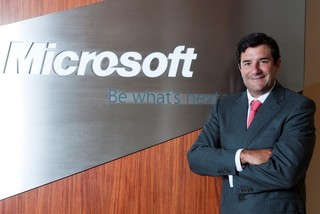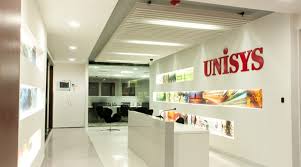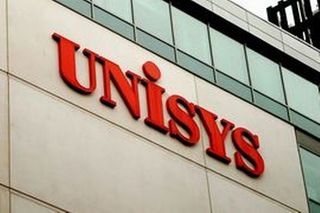Handhelds get better thanks to new software.
Published:
22 July 1999 y., Thursday
Riverbed Technologies Inc. has a simple philosophy when it comes to corporate computing: downsize.Though laptop computers have become a convenient, portable means for roving workers to link up with the office, Riverbed thinks many users would be better served by tiny handheld devices such as 3Com Corp._s PalmPilot organizers. To make that happen, Riverbed develops and markets software to coordinate the use of handheld devices - primarily those built on the PalmPilot platform - on corporate networks. Driving the interest in this technology is the surge of interest in handhelds sparked by the PalmPilot. Though handheld computers have endured a rocky path to acceptance - with devices like Apple Computer Inc._s Newton promising too much, too soon - the various models of 3Com_s Palm have finally validated the concept. Driving the interest in this technology is the surge of interest in handhelds sparked by the PalmPilot. The relatively low cost of Palm devices - ranging from less than $200 for the original model to about $600 for a new version that offers wireless communications - has made them an attractive alternative to laptops for companies that want to collect and deliver information to mobile employees. The new wireless version is especially enticing, offering corporate users the ability to pull information onto PalmPilots without being physically connected to a phone. Handheld devices such as the PalmPilot work well by themselves. With built-in software, a user can "synchronize" data on the handheld with information stored on a personal computer - ensuring that phone lists, calendars and other personal-organization files are up to date. But when it comes to making handhelds talk to an entire corporate network instead of a lone PC, things get complicated. To make handhelds a viable solution for roving workers, they must be able to dial into a corporate server, retrieve and send information, and do so securely - using the same kind of password and other protections that have become standard for laptop users.
Šaltinis:
THE WALL STREET JOURNAL
Copying, publishing, announcing any information from the News.lt portal without written permission of News.lt editorial office is prohibited.
The most popular articles
Software company announced new structure_ of it_s business.
more »
 The electronic vignette system in the Slovak Republic has become unique in the world thanks to the speed of implementation and increase in the revenues from the collection carried out by SkyToll a.s. on behalf of the Slovak government.
more »
The electronic vignette system in the Slovak Republic has become unique in the world thanks to the speed of implementation and increase in the revenues from the collection carried out by SkyToll a.s. on behalf of the Slovak government.
more »
 Unisys has promoted Perla Do Amral to a key leadership role, becoming director of service desk operations for the U.S.-based IT company’s managed services centers in Latin America.
more »
Unisys has promoted Perla Do Amral to a key leadership role, becoming director of service desk operations for the U.S.-based IT company’s managed services centers in Latin America.
more »
 Cesar Cernuda is a Microsoft veteran of 19 years, and has served in several senior leadership positions for Microsoft Business Solutions, including overseeing Microsoft’s ERP and CRM business worldwide.
more »
Cesar Cernuda is a Microsoft veteran of 19 years, and has served in several senior leadership positions for Microsoft Business Solutions, including overseeing Microsoft’s ERP and CRM business worldwide.
more »
 Unisys received a contract from NASA Langley Research Center (LaRC) to continue to deliver advanced hardware, software, and systems integration for flight simulation projects at the agency.
more »
Unisys received a contract from NASA Langley Research Center (LaRC) to continue to deliver advanced hardware, software, and systems integration for flight simulation projects at the agency.
more »
 Unisys Corporation reported third quarter 2015 results.
more »
Unisys Corporation reported third quarter 2015 results.
more »
 On the 10th–15th, this September, RAI Exhibition and Congress Centre in Amsterdam will hold the 48th international exhibition-conference dedicated to electronic media and entertainment industry IBC 2015.
more »
On the 10th–15th, this September, RAI Exhibition and Congress Centre in Amsterdam will hold the 48th international exhibition-conference dedicated to electronic media and entertainment industry IBC 2015.
more »
 Unisys Corporation announced the completion of the initial phase of testing of a facial recognition system at Dulles International Airport, Virginia, to help Customs and Border Protection (CBP) to identify imposters attempting to enter the United States using passports that are fraudulent or do not belong to them.
more »
Unisys Corporation announced the completion of the initial phase of testing of a facial recognition system at Dulles International Airport, Virginia, to help Customs and Border Protection (CBP) to identify imposters attempting to enter the United States using passports that are fraudulent or do not belong to them.
more »
 Television was invented back in 1884, when German Paul Gottlieb Nipkow came up with the idea to scan images using a rotating metal disc with a spiral pattern of holes in it. When the disc was spinning, each hole would scan one brightly lit line of the image.
more »
Television was invented back in 1884, when German Paul Gottlieb Nipkow came up with the idea to scan images using a rotating metal disc with a spiral pattern of holes in it. When the disc was spinning, each hole would scan one brightly lit line of the image.
more »
 SuperCom, a leading provider of secure solutions for e-Government, Public Safety, HealthCare, and Finance sectors, announced its results for the quarter ended March 31, 2015.
more »
SuperCom, a leading provider of secure solutions for e-Government, Public Safety, HealthCare, and Finance sectors, announced its results for the quarter ended March 31, 2015.
more »
 Unisys Corporation today announced that Tom Patterson has joined the company as vice president for global security solutions, responsible for leading Unisys' security solutions business worldwide.
more »
Unisys Corporation today announced that Tom Patterson has joined the company as vice president for global security solutions, responsible for leading Unisys' security solutions business worldwide.
more »